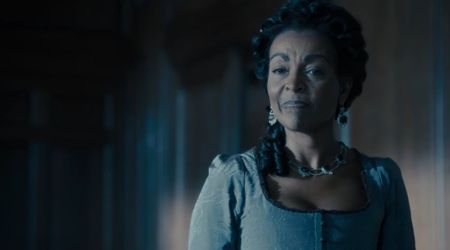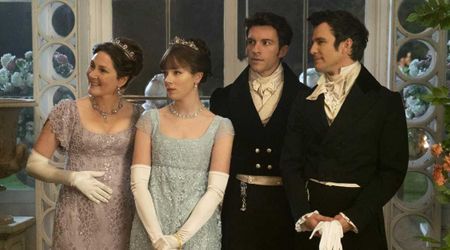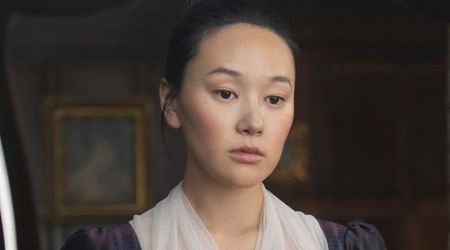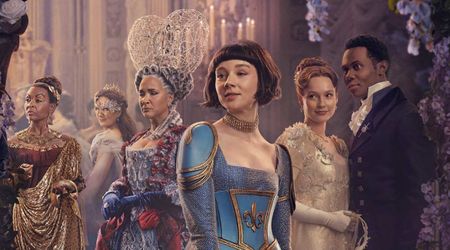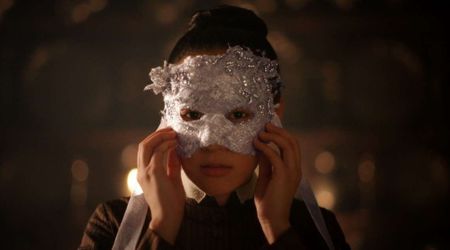'Mrs America' Review: Cate Blanchett is outstanding in her blatant antifeminist role that sparkles with irony

Spoilers for first three episodes of 'Mrs America'
Trust an FX production to be relevant even amid a full-blown pandemic! Armed with an arsenal of catchy tunes, glorious 70s style and the emergence of the second wave of feminism — the Hulu show 'Mrs America' just debuted with three stellar episodes and we already know how the upcoming awards season is going to pan out.
On the surface, starring Cate Blanchett as the fiercely 'liberated' homemaker Phyllis Schlafly, the series sees the rise and fall of the Equal Rights Amendment bill at its prime. The relevance? Five decades later, the ERA is still not a law and almost a majority of American women had their abortion rights seized away in the manner one would deny a child candy after bedtime.
But Phyllis's fight as a staunch anti-feminist who feels their core homemaker values are being targeted by women demanding equal rights is rooted in its own irony. In that, even though triumphant in the end, the anti-ERA movement only further insists that there's no escaping the glaring need for equal rights with equal pay as even the 'god-fearing' anti-feminists find their respite when they step out of their homes for a cause.
The first episode titled 'Phyllis' sees Blanchett's character as the gorgeous mother of six and devoted wife of Illinois lawyer Fred Schlafly who is blinded to his wife's potential beyond the doors of their exquisite home and treats her compassionate plea to all American homemakers as some other hobby of the bored suburban elite. While Phyllis loves to profess she is the most liberated woman even as a regular homemaker, and her fight is rooted in women demanding equality that would require homemakers to work both inside and outside the house, it's obvious how much she yearns to prove herself in the outside world.
It might be a thirst for recognition or just the latent desperation to do something other than raise children, but Phyllis loves the idea of shattering the backbones of feminism with the same passion that she dedicates to discussing nuclear policies. Sadly, men treats her like they would any woman trying to be in the ranks of men and reduces her to 'take notes' for the meeting, citing her excellent penmanship.
It is in those moments that we see Blanchett's expertise coming out to play the same way her manic episodes in 'Blue Jasmine' were always shrouded by an air of delicate poise and classy acceptance. Even for the dramatization of events, the series doesn't propel Phyllis into outbursts that would be extremely unlikely of her persona and there lies co-directors Anna Boden and Ryan Fleck's precision; the characters stay close to their real-life avatars while churning out a compelling fictionalized portrayal of the real-life movement on-screen.
Rivaling Blanchett's intimidating stance as the leader of all things anti-feminist is Rose Byrne's depiction of Gloria Steinem — the celebrity at the core of the ERA movement who wants people to listen to her not for her pretty face but for her legitimate insights into the topic.
The second episode titled 'Gloria' sees the eponymous character make some pretty relevant observations about abortion rights as she disses Playboy as drag and talks about the Hindu goddess Kali tearing up trying to juggle her work life and family — thus reflecting a statement that's relevant even in 2020. And while one might think therein lies the magic of the ERA, due credit should go to Margo Martindale's Bella Abzug, teaching Gloria the nuances of utilizing fame in politics, and of course Uzo Aduba's iconic portrayal of former presidential nominee Shirley Chisholm.
Add to that Tracey Ullman's Betty Friedman who clashes and brainstorms with Gloria just the same, and other less-known ERA warriors, including the likes of GOP activist Jill Ruckelshaus essayed by Elizabeth Banks. We can already estimate the phenomenal power the weekly episodes will roll out with.
In all its totality — well, at least the first three episodes as a collective, 'Mrs America' comes off as a marvelous commentary of one of history's pivotal gender equality movements and the revolutionaries who sailed their demands for equal rights through the past and are still now. But Blanchett's counter-revolutionary braving ironic backlash from patriarchal norms as she fights against feminism is too real, even 50 years after the likes of Steinem and Ruth Bader Ginsburg propagated it.
In their own twisted way, Phyllis Schlafly, and her strongest ally Alice Macray (brought to life effortlessly by Sarah Paulson) are encountering the same fight as the ERA, and creator Dahvi Waller's unconventional take on the equal rights movement only makes for a refreshing watch worth looking forward to.
'Mrs America' premiered with its first three episodes on Hulu, with weekly episodes dropping every Wednesday on the streaming platform.


